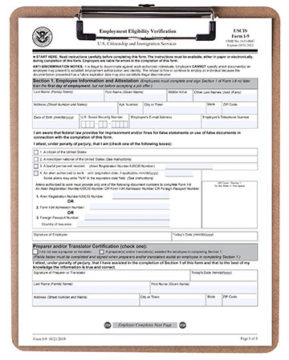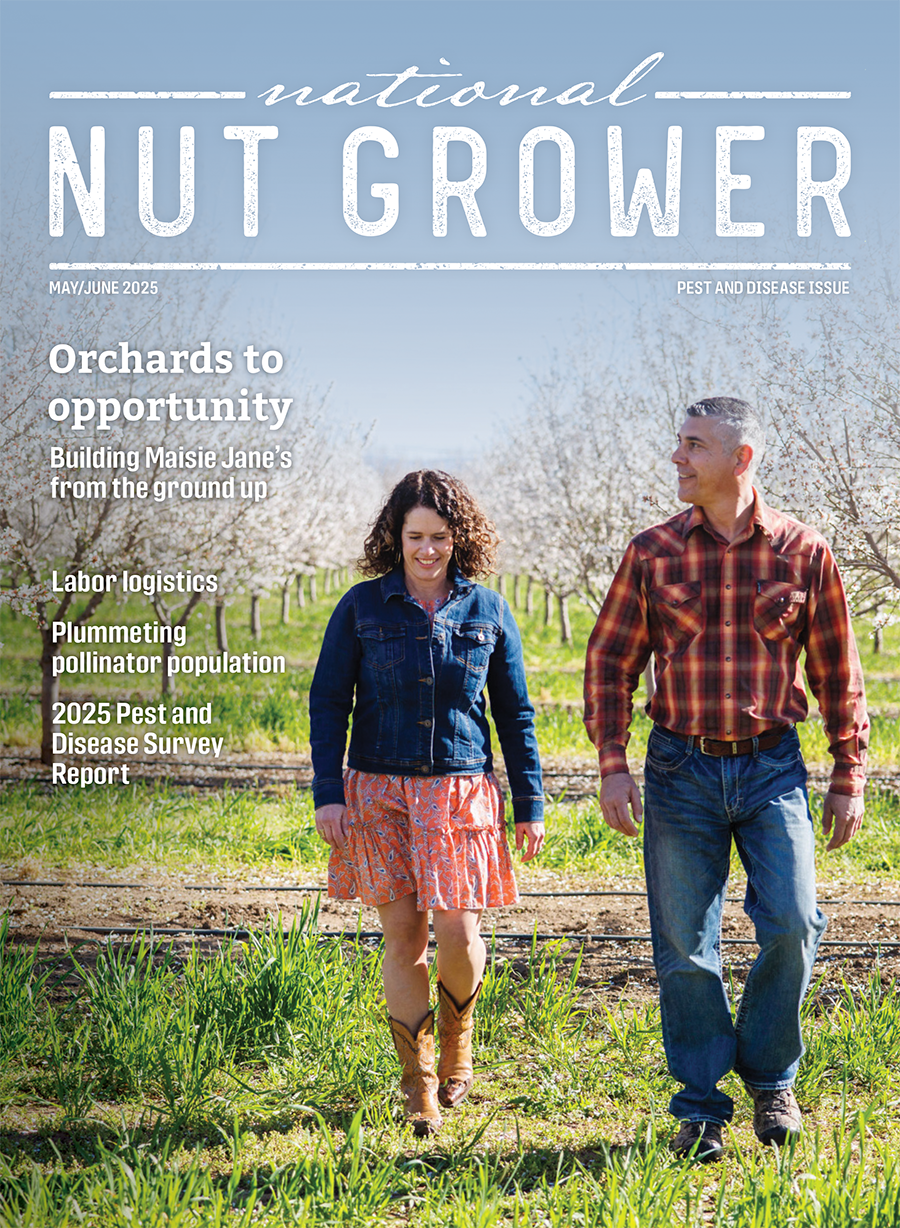
Fall 2021
4 FAQs about labor in the nut industry

Labor is business’s most important resource as well as its greatest liability, and the agriculture industry is no exception. There are a myriad of issues to navigate when hiring new employees, with additional considerations if you have migrant or
seasonal workers. Below are four frequently asked questions regarding labor in the nut industry:
1. What forms are required to be completed for new employees?
2. What federal employment laws am I required to follow?
3. What training should I prioritize for a new employee?
4. In regard to COVID-19, what am I required to follow to protect my employees?
What forms are required to be completed for new employees?
As you begin to prepare for new and seasonal hires, initiate a new best practice this year and either develop or review your new hire checklist. This checklist should include the following required federal employee forms and notices:
1. Form I-9
The U.S. Citizen and Immigration Service (USCIS) utilizes the Form I-9 to verify the identity and employment authorization of individuals hired for employment in the United States. All U.S. employers must ensure proper completion of the form for each individual hired for employment in the U.S., including citizens and non-citizens. All employers must complete and retain the I-9 for every person they hire for employment after Nov. 6, 1986, in the U.S. as long as the person works for pay or other type of payment. Form I-9 is required to be completed for part time, full time, regular, seasonal and temporary employees. For additional details on the Form I-9, please visit USCIS at www.uscis.gov/i-9central.
2. IRS Form W-4
The Form W-4 must be completed so that you as the employer can withhold the correct federal income tax from your employee’s pay. Employees should have the opportunity to consider completing a new Form W-4 each year and when their personal or financial situation changes.
3. Terms and Conditions for MSPA workers (WH-516)
Employers must provide each migrant and seasonal day-haul worker with a written disclosure at the time of recruitment that describes the terms and conditions of his or her employment. When offering employment, the employer must provide such disclosure to all seasonal workers upon request. The disclosure must be written in the worker’s language, as necessary or reasonable. The employer must also post in a conspicuous place at the job site a poster setting forth the rights and protections that the MSPA affords workers. A housing provider must post or present to each worker a statement of the terms and conditions of occupancy.
What federal employment laws am I required to follow?
1. Fair Labor Standards Act in Agriculture (FLSA)
The FLSA is the federal law which sets minimum wage, overtime, recordkeeping and youth employment standards for most employment, including agricultural employment. There are, however, some exemptions which exempt certain employees from the minimum wage provisions, the overtime pay provisions, or both. For more general information on the applications of the FLSA to agricultural settings, please see the U.S. Department of Labor Fact Sheet 12.
2. Migrant and Seasonal Agricultural Worker Protection Act (MSPA)
MSPA protects migrant and seasonal agricultural workers by establishing employment standards related to wages, housing, transportation, disclosures and recordkeeping. The MSPA also requires farm labor contractors to register with the U.S. Department of Labor (DOL). For more general information on the MSPA, please see the U.S. Department of Labor Fact Sheet 49.
What training should I prioritize for a new employee?
Many states require specific training ranging from sexual harassment prevention to heat illness prevention. Regardless of your location, agriculture falls under the Occupational Safety Health Administration’s “general duty clause” which states, “employers shall furnish employment and a place of employment which are free from recognized hazards that are causing or are likely to cause death or serious physical harm to employees.”
Ensure you are adequately training your employees on equipment safety, including operator certifications for particular pieces of equipment such as forklifts. Specialized training is necessary for unique nut harvesting equipment such as shakers, sweepers and baggers. Prioritize an employee’s training based on local and state requirements, as well as the employee’s job duties. Overall, it is important that your internal practices and training instill a culture of safety for your operation as a whole.
In regard to COVID-19, what am I required to follow to protect my employees?
Again, this is another circumstance that can vary widely based on your state of residence. Be sure to check with local and state agencies to ensure compliance. Additionally, all agriculture work sites should follow, as feasible, relevant aspects of CDC guidance, CDC’s Critical Infrastructure Guidance, and guidance from regulatory bodies such as the Food and Drug Administration, as needed. Some key points to consider:
- Management in the agriculture industry should conduct work site assessments to identify coronavirus disease 2019 (COVID-19) risks and infection prevention strategies to protect workers.
- Work site guidance for COVID-19 prevention and control should be taken into consideration in employer-furnished shared worker housing, transportation vehicles and work settings.
- Prevention practices should follow the hierarchy of controls, which includes using source control and a combination of engineering controls, administrative controls (especially proper sanitation, cleaning and disinfection), and personal protective equipment.Additional information and resources:
- Agriculture Workers and Employers: Interim Guidance from CDC and the U.S. Department of Labor
- Agricultural Employer Checklist for Creating a COVID-19 Assessment and Control Plan









